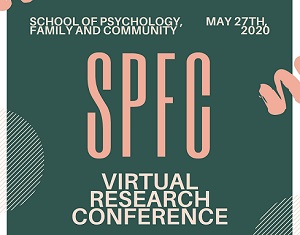Faculty Sponsor(s)
Peter Rivera, Ph.D.
Presentation Type
Event
Project Type
Research proposal
Primary Department
Marriage and Family Therapy
Description
While the relationship between religion and sexual shame has been increasingly discussed, there has yet to be a study examining this relationship (Schermer-Sellers, 2017). This study aims to explore potential relationships between experiences of sexual shame (Clark, 2017) and religiosity. Latent class analysis was used to assess categorical indicators of sexual shame as found by Clark et al. (2017) and present and historical religious exposure. Covariates of membership were explored. The research aims to provide grounds for exploration of experiences of sexual shame nuanced by religion and empower clinicians to assist clients navigating experiences of sexuality, shame, and religion.
Copyright Status
http://rightsstatements.org/vocab/InC/1.0/
Additional Rights Information
Copyright held by author(s).
Religiosity and Experiences of Sexual Shame: An Exploratory Latent Class Analysis Study
While the relationship between religion and sexual shame has been increasingly discussed, there has yet to be a study examining this relationship (Schermer-Sellers, 2017). This study aims to explore potential relationships between experiences of sexual shame (Clark, 2017) and religiosity. Latent class analysis was used to assess categorical indicators of sexual shame as found by Clark et al. (2017) and present and historical religious exposure. Covariates of membership were explored. The research aims to provide grounds for exploration of experiences of sexual shame nuanced by religion and empower clinicians to assist clients navigating experiences of sexuality, shame, and religion.


